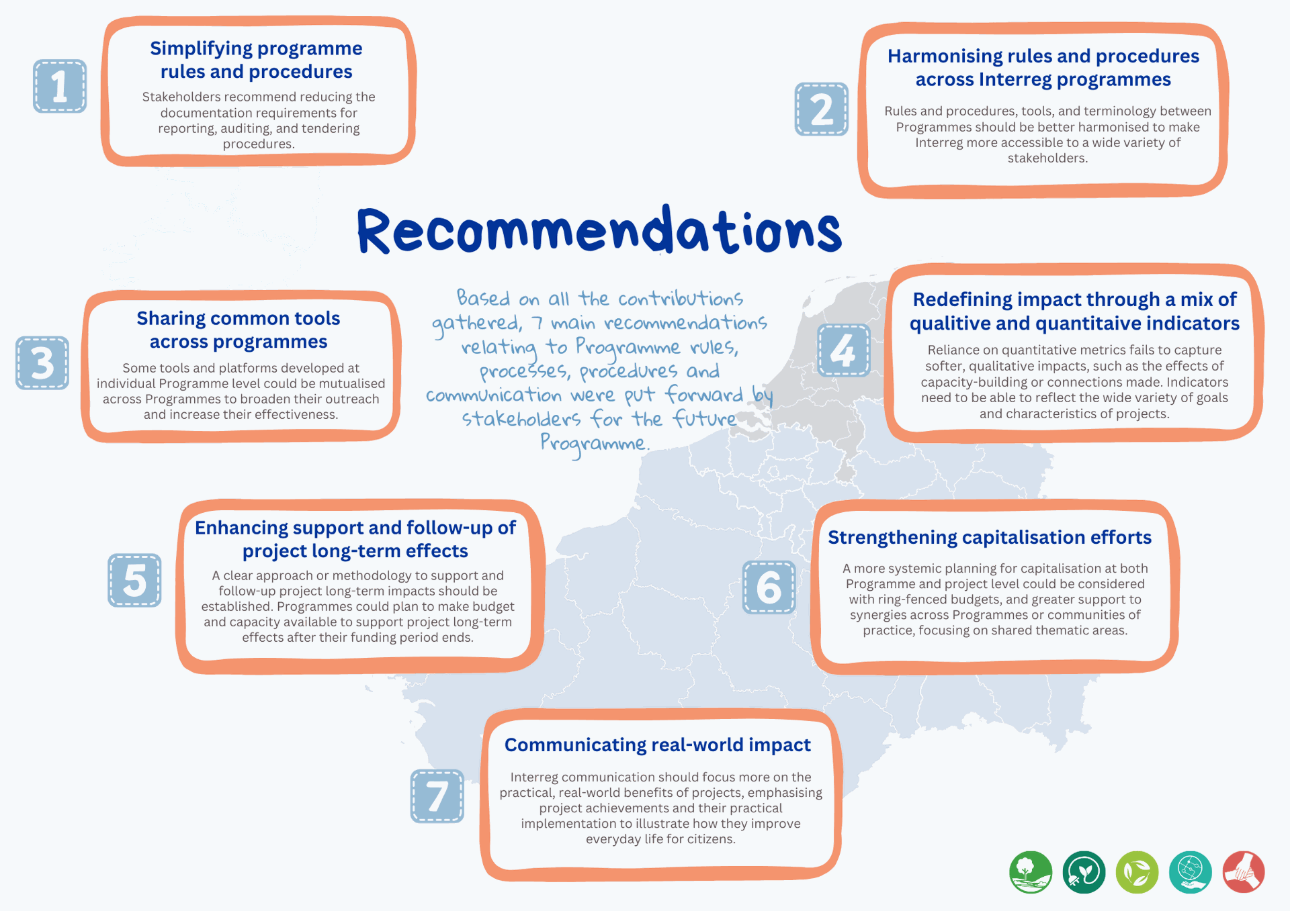In late 2023, the Commission missioned Interreg NWE and other European Territorial Cooperation Programme to consult stakeholders in preparation of legislative proposals for the post-2027 period. This consultation aimed to gather input on the future shape and content of Interreg Programmes.
In this article, discover the main outcomes of the NWE stakeholder consultation!
Who was consulted?
The NWE Programme launched its consultation process in July 2024, with three main steps: An online survey specifically targeted towards past and present NWE beneficiaries, “focus groups” on the future of Interreg NWE organized with a broader group of stakeholders in the framework of the Interreg Annual event (Dublin, 5-6 December) and a limited number of in-person interviews with organisations expected to hold key insights on the NWE territory.
In total, over 300 stakeholders were consulted in this process with 55% having prior experience with the NWE Programme. Over 90 % of them came from one of the 7 countries of our Programme area, and included representatives from all 4 branches of the quadruple helix (government/public organisations, industry/businesses, research/academia and society/citizen groups).
Stakeholder views on themes and geography for the future
In the framework of the consultation, stakeholders were asked questions relating to the scope, thematic focus and geography of our Programme.
Although formulated sometimes differently, most of the themes mentioned as relevant for NWE are similar to the ones addressed within our current Programme:
- environmental and climate action;
- energy transition and circular economy;
- social inclusion and employment;
- digital transformation and technological innovation;
- mobility and infrastructure development.
Beyond these topics it’s the diversity of possible project themes that the Programme offers, the variety of types of actions supported by the Programme and the unique opportunity to cooperate with other organisations on shared challenges that was praised by stakeholders.
On the geography of NWE, stakeholders see clear distinctive territorial features to the North-West European area: a shared industrial and trading history, and regions predominantly characterised by their high population density and the intensity of their economic activities. This leads to an intensive use of space on land or at sea, urban planning challenges, and pressure on resources, which would justify for many stakeholders to maintain a strong focus on addressing climate and environmental factors.
Following the Brexit, many stakeholders also mentioned the potential they see in positioning the NWE Programme as a link with the UK.
Main recommendations to enhance Interreg NWE

Next steps
The detailed outcomes and recommendations from the Interreg NWE stakeholder consultation was submitted to the Commission in December 2024. A summary of all Interreg consultations will be presented and discussed by DG REGIO with all Interreg programmes at the Interreg GO! event on 27-28 March 2025 in Gorizia (IT) / Nova Gorica (SI).
Over summer and autumn 2025, the European Commission will publish legislative proposals on the future EU budget and Cohesion Policy. This will kick-start a 2-year period of political and institutional negotiations between Member States, the Commission and the EU Parliament that will determine the content and shape of future Interreg programmes.
We will keep our stakeholders regularly informed of progress made and look forward to seeing cooperation continue to thrive in the NWE area post-2027!